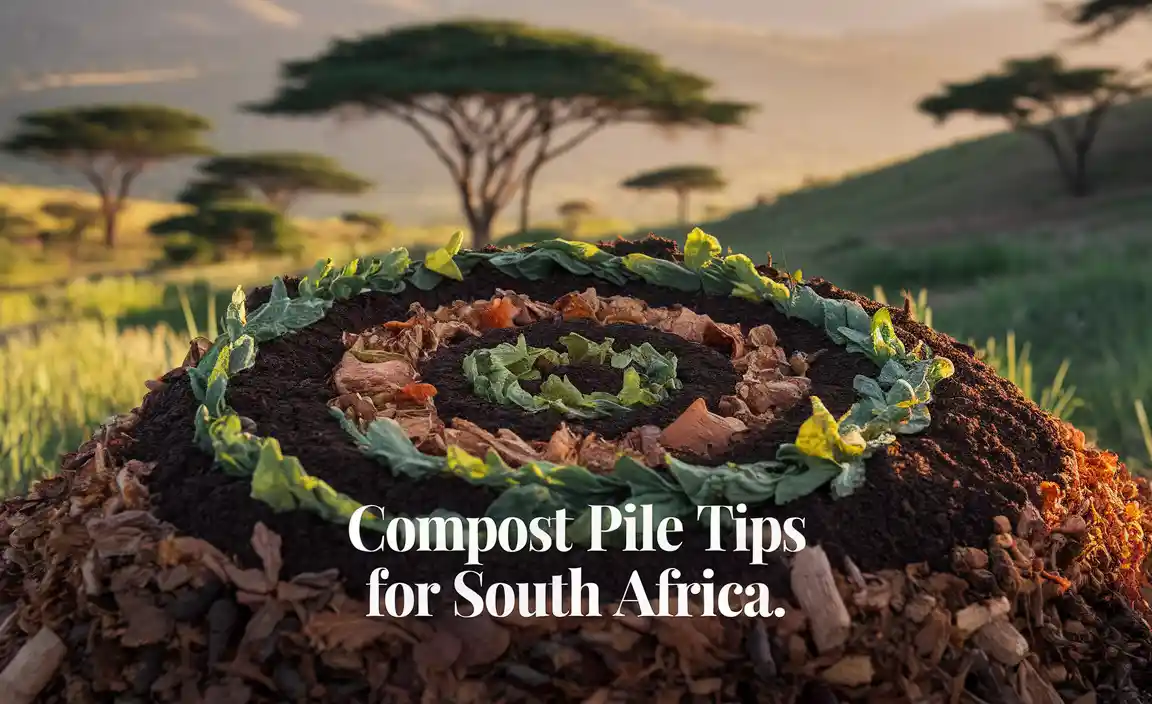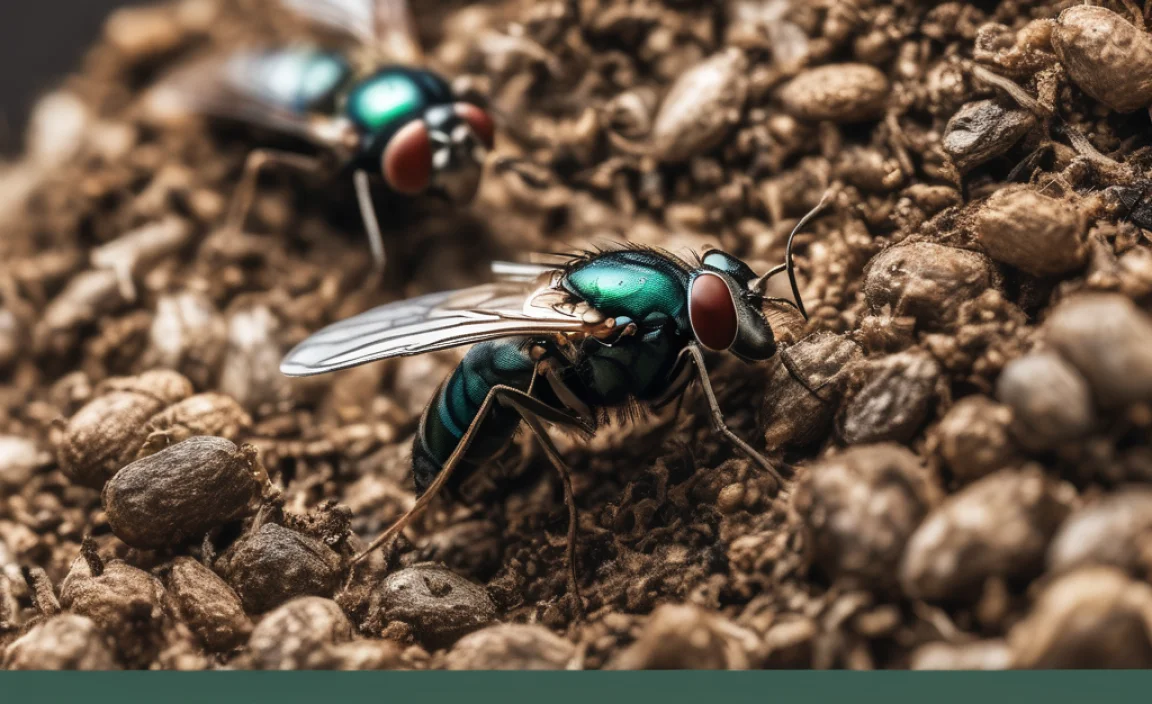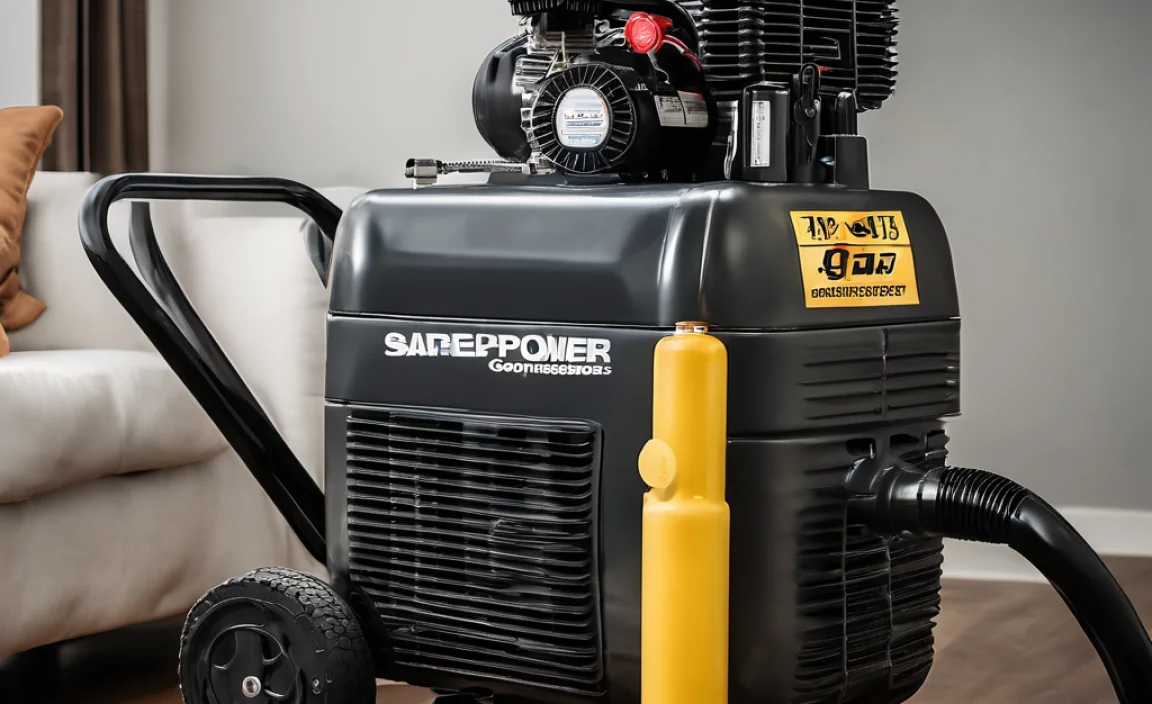Hey there! Thinking about composting but feeling a little overwhelmed by where to start with the bags? Don’t sweat it! Finding the right compost bags and a reliable supplier is easier than you think. It’s a common hurdle for beginners, and I’m here to break it all down for you. We’ll walk through exactly what you need to know, so you can get your composting journey off to a clean and successful start. Ready to dive in? Let’s find you the perfect compost bags!
Compost Bags Suppliers: Your Essential Guide to Greener Choices
Composting at home is a fantastic way to reduce waste, enrich your garden soil, and contribute to a healthier planet. Whether you’re a seasoned gardener or just starting out, using the right compost bags can make the whole process smoother and more efficient. But where do you find them, and what should you look for? As your go-to guide for simplifying home and garden tasks, I’m here to walk you through everything you need to know about compost bags suppliers.
Why Do You Need Special Compost Bags?
You might be wondering, “Why can’t I just use any old bag?” Great question! Standard plastic bags aren’t designed for composting. They trap moisture, prevent airflow, and can take hundreds of years to break down, defeating the purpose of composting. Compost bags, on the other hand, are made from breathable, biodegradable, or compostable materials. They are specifically designed to aid the composting process by allowing air circulation and breaking down naturally along with your organic waste.
- Biodegradable: These bags will break down over time in a compost environment, but might leave behind small plastic particles.
- Compostable: These bags are designed to break down completely into nutrient-rich compost, leaving no toxic residue. They often meet specific standards and certifications, like BPI or CMA.
- Breathable: This feature is crucial for allowing oxygen to reach the organic material, which is essential for aerobic decomposition – the process that prevents bad odors and speeds things up.
What to Look for When Choosing Compost Bags
When you’re shopping for compost bags, especially from a new supplier, keeping a few key things in mind will save you a lot of headaches later. Think of it like picking the right tool for a DIY project – the right bag makes the job much easier!
Material Matters
The material is perhaps the most important factor. Most compost bags you’ll find from reputable suppliers are made from plant-based materials like corn starch (PLA), paper, or specially formulated bioplastics. These materials are chosen because they degrade effectively in composting conditions. Always check the product description for details on the material and any certifications it holds.
Certifications to Trust
For compostable bags, certifications are a big deal. Look for stamps from organizations like the Biodegradable Products Institute (BPI) in North America or the Compostable MANUFACTURERS ASSOCIATION (CMA). In Europe, you might see EN 13432. These certifications mean the bags have been tested and proven to break down in industrial composting facilities within a specific timeframe and without leaving harmful residues. For home composting, look for bags certified for home compostability, as industrial facilities often reach higher temperatures.
Size and Capacity
Compost bags come in various sizes, just like regular trash bags. Consider what you’ll be using them for. Are you collecting kitchen scraps for a small countertop bin? Or are you looking for larger bags to manage yard waste or bulk compost? Make sure the size you choose fits your bin and your composting needs.
Durability
Even though they’re designed to break down, you still want bags that hold up until they’re ready to be composted! Especially if you’re transporting them, look for bags that are sturdy enough to prevent leaks or tears. Some bags are reinforced, which can be a good feature for heavier loads.
Where to Find Reliable Compost Bags Suppliers
The good news is that finding compost bags is getting easier every day. Here’s a breakdown of where you can typically find them:
Online Retailers
This is often the most convenient option. Major online shopping platforms have a wide variety of compost bags from different brands and suppliers. You can easily compare prices, read reviews, and have them delivered right to your door.
- Amazon: A vast selection of compostable and biodegradable bags, from small kitchen liners to larger yard waste bags. Search for terms like “compostable trash bags” or “biodegradable bin liners.”
- Specialty Eco-Friendly Stores: Websites focused on sustainable living often curate the best eco-friendly products, including high-quality compost bags.
- Direct from Manufacturers: Many manufacturers sell directly through their own websites. This can sometimes offer better pricing or bulk discounts.
Local Garden Centers and Hardware Stores
As composting gains popularity, more brick-and-mortar stores are stocking compost bags. Your local garden center is a great place to check, as they cater to gardeners and often have composting supplies readily available. Hardware stores are also increasingly carrying these items.
Municipal Supply Programs
Some cities or towns offer compost bags or discounted purchasing programs as part of their waste reduction initiatives. Check your local government’s waste management or recycling website to see if such programs exist in your area.
Grocery Stores
In some regions, larger grocery stores are starting to carry compostable garbage bags, particularly in their household goods or eco-friendly sections. Keep an eye out when you’re doing your regular shopping!
Key Suppliers to Consider (and What Makes Them Stand Out)
While it’s always good to explore, some brands and suppliers have established themselves as reliable sources for compost bags. Here are a few types of suppliers and what to expect:
| Type of Supplier | Pros | Cons | Best For |
|---|---|---|---|
| Large Online Retailers (e.g., Amazon, Walmart.com) | Wide selection, competitive pricing, fast shipping, customer reviews. | Can be overwhelming to choose, quality can vary between brands. | Convenience, variety, comparing options easily. |
| Specialty Eco-Friendly Online Stores | Curated selection of high-quality, certified products, often with detailed information. | May have fewer options, potentially higher prices than mass retailers. | Finding trusted, certified compostable products and learning more about sustainability. |
| Local Garden Centers/Hardware Stores | Immediate availability, ability to see physical products, supporting local businesses. | Limited selection, potentially higher prices, availability can vary. | Quick purchases, getting advice from store staff. |
| Direct from Manufacturer Websites | Best pricing for bulk buys, direct support, often detailed product information. | Shipping costs can be higher for small orders, less variety than marketplaces. | Buying in bulk, loyalty to a specific brand. |
When you’re looking at a supplier, take a moment to browse their website. Do they clearly explain their products? Do they offer certifications? Good suppliers are transparent about what they sell. For instance, looking for suppliers that clearly display BPI certification or mention home compostability standards is a good sign that they’re committed to quality and genuine eco-friendly solutions.
DIY Compost Bag Alternatives (When You Can’t Buy)
Sometimes, you might find yourself needing compost bags but a store is closed, or online delivery will take too long. In a pinch, you can use alternatives, though they might not perform as well as dedicated compost bags. Remember, the goal is to get your organic waste to the composting bin!
- Plain Paper Bags: These can work for dry kitchen scraps like coffee grounds or tea bags. They are biodegradable but will break down quickly and don’t do well with wet items.
- Newspaper: Shredding newspapers can be used to absorb moisture in your compost bin, but for collecting scraps, it’s less practical.
- Cardboard Boxes: Flattened cardboard can be a great “brown” material in your compost pile. For collection, small pieces could be used to line a bin, but it’s not ideal for carrying wet waste.
These alternatives are best for short-term collection or for adding structural material to your compost pile. For regular use or transporting scraps, investing in good compost bags from a reliable supplier is recommended for ease and effectiveness.
Tips for Using Your Compost Bags Effectively
Once you’ve found your supplier and your bags, here are some tips to make sure you’re using them right:
- Don’t Overfill: Stuffing bags too full can cause them to tear, especially if they are holding wet scraps.
- Tie Them Securely: Most compost bags have drawstrings or can be tied. Make sure they are closed tightly to prevent leaks and keep pests out.
- Store Them Properly: Keep your unused compost bags in a cool, dry place. Exposure to heat or moisture can degrade them prematurely.
- Know Your Composting System: If you have a municipal composting program, check their guidelines on what types of bags are accepted. Some require specific certifications for industrial composting. If you’re home composting, bags certified for home compostability are best. According to the U.S. Environmental Protection Agency (EPA), proper composting requires a balance of materials and conditions for effective decomposition.
- Ventilation is Key: Even with breathable bags, ensure your collection bin itself has some airflow. This helps prevent anaerobic conditions that can lead to stinky compost.
The Environmental Impact: Why Choosing the Right Bags Matters
Choosing compostable or biodegradable bags from reputable suppliers isn’t just about convenience; it’s a conscious choice for the environment. Standard plastic bags contribute to landfill waste and pollution, taking centuries to break down. By opting for bags made from renewable resources that break down naturally, you’re actively reducing your environmental footprint.
Benefits of Using Eco-Friendly Compost Bags:
- Reduces Landfill Waste: Organic materials diverted from landfills produce less methane, a potent greenhouse gas.
- Enriches Soil: The compost produced is a natural fertilizer, reducing the need for chemical alternatives.
- Conserves Resources: Biodegradable materials are often made from renewable resources like corn or potato starch.
- Minimizes Pollution: Properly compostable bags break down completely, leaving no harmful microplastics behind.
When selecting a supplier, look for those who are transparent about their sourcing and manufacturing processes. A company dedicated to sustainability will often share details about their commitment to reducing environmental impact, which is a good sign you’re supporting a responsible business. You can often find this information in their “About Us” or “Sustainability” sections on their website. For more on the science behind composting and its environmental benefits, resources like university extensions or agricultural departments often provide excellent insights.
Common Issues and How to Solve Them
Even with the best bags and suppliers, sometimes things don’t go perfectly. Here are a few common hiccups and how to navigate them:
- Bags Tearing: If your bags are tearing, you might be overfilling them, or they could be too wet. Try using two thinner bags for extra support if you’re concerned about leaks, or ensure you’re not packing them too tightly.
- Bad Odors: This is usually a sign of your compost pile being too wet or lacking airflow (anaerobic conditions). Compost bags can help, but they aren’t a magic fix for a poorly managed compost bin. Add more “brown” materials like shredded paper or dry leaves, and make sure your bin can breathe.
- Bags Not Breaking Down: If you’re using certified compostable bags and they aren’t breaking down in your home compost bin, it might be because your bin isn’t hot enough. Many “compostable” bags are designed for industrial composting facilities. Look for bags specifically labeled “certified home compostable” if that’s your situation.
- Difficulty Finding Specific Sizes/Types: If you need a niche product (like very large yard waste bags or custom sizes), you might need to look at specialty suppliers or manufacturers directly. Online marketplaces are your best bet here.
A Quick Cost Comparison
While convenience and eco-friendliness are key, budget is also a factor. Here’s a general idea of what you might expect:
| Type of Bag | Approximate Cost per Bag (Single Roll) | Notes |
|---|---|---|
| Standard Biodegradable (thinner, often for kitchen scraps) | $0.20 – $0.50 | Good for smaller bins, may be less durable. |
| Certified Compostable (thicker, kitchen or small bin) | $0.30 – $0.75 | Breaks down more completely, usually BPI or CMA certified. |
| Compostable Yard Waste Bags (larger size) | $1.00 – $2.50 | Designed for leaves, grass clippings, etc. Can be sturdier. |
Remember, buying in bulk (e.g., cases of bags instead of just one roll) will almost always lower the cost per bag. When comparing prices, always check the number of bags per roll or per case to ensure you’re comparing apples to apples.
Making the Choice for a Greener Outcome
Navigating the world of compost bags and their suppliers might seem like a small detail in the grand scheme of composting, but it’s an important one. By understanding what makes a good compost bag – from its material and certifications to its size and durability – and knowing where to find reliable suppliers, you’re setting yourself up for success. You’re not just disposing of waste; you’re actively participating in a system that benefits your garden and the planet.
Choosing to use compostable or biodegradable bags from trustworthy sources is a simple yet powerful way to reduce your environmental impact. It’s about making conscious decisions that align with a more sustainable lifestyle. So, take a moment, consider your needs, do a little research on those suppliers, and pick the bags that feel right for you. Your future garden, and the Earth, will thank you for it. Happy composting!
Frequently Asked Questions About Compost Bags
Here are some common questions beginners have when looking for and using compost bags:
Q1: What’s the difference between biodegradable and compostable bags?
A: Biodegradable bags will break down over time, but might not break down completely or quickly in all conditions. Compostable bags are designed to break down into nutrient-rich compost under specific composting conditions, leaving no toxic residues. Look for certifications like BPI or CMA for compostable bags.
Q2: Can I use any compostable bag in my backyard compost bin?
A: Not always. Many “compostable” bags are certified for industrial composting facilities, which reach higher temperatures than home compost bins. If you’re home composting, look specifically for bags certified as “home compostable.”
Q3: How do I know if a supplier is reliable?
A: A reliable supplier will be transparent about their products, clearly list material information, provide relevant certifications (like BPI, CMA, or home compostable stamps), and have positive customer reviews or a good reputation in the eco-friendly community.
Q4: Are compost bags really better for the environment?
A: Yes, when used correctly and properly composted, they are. They are made from renewable resources and break down completely, unlike traditional plastic bags that pollute for centuries. They help divert organic waste from landfills, reducing methane emissions.
Q5: Where is the best place to buy compost bags in bulk?
A: Buying directly from the manufacturer’s website or from large online retailers in case quantities is often the most cost-effective way to purchase compost bags in bulk. Specialty eco-friendly online stores may also offer bulk discounts.
Q6: My compostable bags are getting slimy. What am I doing wrong?
A: Sliminess usually means the bags are holding too much moisture. This can happen if you’re putting very wet food scraps in without enough absorbent material. Try adding shredded newspaper or dry leaves to your collection bin, or ensure your bags aren’t overfilled and are tied securely.
Answering these questions should help clear up any doubts you might have. Remember, making informed choices is part of the journey!

I am passionate about home engineering. I specialize in designing, installing, and maintaining heating, ventilation, and air conditioning systems. My goal is to help people stay comfortable in their homes all year long.



